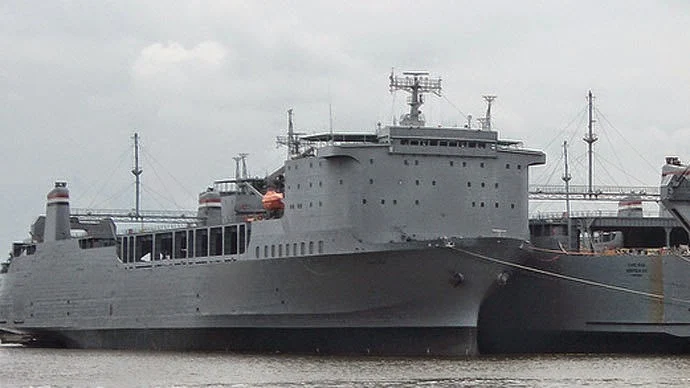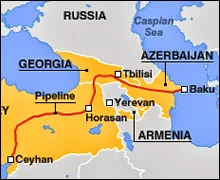An oil pipeline rupture has caused thousands of cubic metres of crude oil to spill into the Arava desert in southern Israel near the border with Jordan, officials said Thursday (Dec 4).The incident took place just north of the Red Sea resort city of Eilat and 500m from the frontier.
The spill was "a couple of kilometres long", according to an Israeli environment ministry spokeswoman who was unable to give more specific information.
She said it was unclear whether there was any foul play and environmental authorities would open an investigation. "They have forces on the ground that prevented it from spreading to Jordan," she added.
The leak involved a 245km pipeline carrying crude oil from the southern port city of Ashkelon on Israel's Mediterranean coast to Eilat.
Ronen Moshe, spokesman for the Eilat Ashkelon Pipeline Company (EAPC), said the spill happened at 12.45 am on Thursday in a new section of the pipeline.
"The leak has been stopped," he said, adding that the reason for the spill was under investigation. "There are dozens of people in the field taking care of the aftermath," he said, indicating there had been no impact on supply. According to the company's website, the EAPC was founded in 1968 and serves as a land bridge for transporting crude oil between the Red Sea and the Mediterranean.
The spill was "a couple of kilometres long", according to an Israeli environment ministry spokeswoman who was unable to give more specific information.
She said it was unclear whether there was any foul play and environmental authorities would open an investigation. "They have forces on the ground that prevented it from spreading to Jordan," she added.
The leak involved a 245km pipeline carrying crude oil from the southern port city of Ashkelon on Israel's Mediterranean coast to Eilat.
Ronen Moshe, spokesman for the Eilat Ashkelon Pipeline Company (EAPC), said the spill happened at 12.45 am on Thursday in a new section of the pipeline.
"The leak has been stopped," he said, adding that the reason for the spill was under investigation. "There are dozens of people in the field taking care of the aftermath," he said, indicating there had been no impact on supply. According to the company's website, the EAPC was founded in 1968 and serves as a land bridge for transporting crude oil between the Red Sea and the Mediterranean.
- AFP/el
http://www.channelnewsasia.com/news/world/oil-pipeline-bursts-near/1510182.html
4/12/14
--
-


















 GR
GR FR
FR DE
DE ES
ES IT
IT RU
RU EU
EU